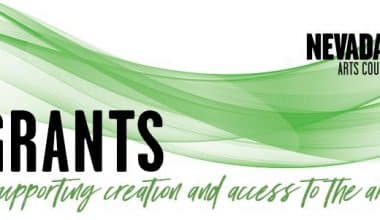In Nigeria’s ever-challenging business environment, one thing remains constant: the need for capital. Many Nigerian entrepreneurs have brilliant business ideas, but without funding, those ideas often fade away. Enter the Presidential Conditional Grant Scheme (PCGS)—an initiative by the Federal Government of Nigeria aimed at empowering micro, small, and medium enterprises (MSMEs) by offering non-repayable grants. This scheme serves as a beacon of hope, especially for rural entrepreneurs who find it difficult to access traditional loans due to a lack of collateral or credit history. With this program, the government seeks to empower small businesses, tackle poverty, and boost the national economy.
Let’s take a detailed look at the presidential conditional grant scheme, how it works, and its benefits for business owners in Nigeria.
Key Points
- The Presidential Conditional Grant Scheme (PCGS) offers non-repayable financial support to micro, small, and medium enterprises (MSMEs), helping them grow without the burden of loan repayments.
- The scheme primarily targets rural entrepreneurs, offering them access to capital they may otherwise lack and stimulating economic activity in underserved areas.
- PCGS supports businesses across various sectors like agriculture, manufacturing, and retail, aiming to diversify Nigeria’s economy and reduce dependence on oil.
- The grant scheme prioritizes empowering marginalized groups, such as women and youth, by helping them overcome financial barriers and start their own businesses.
What is the Presidential Conditional Grant Scheme (PCGS)?
The Presidential Conditional Grant Scheme (PCGS) is an initiative spearheaded by the Federal Government to help MSMEs access grants to either start or expand their businesses. Unlike traditional loans, these grants are non-repayable, making them particularly attractive for small business owners and startups who lack the financial muscle to handle loan repayments.
Launched to drive economic growth, the presidential conditional grant scheme aims to eliminate some of the financial barriers that impede small businesses in Nigeria, particularly in rural communities. The scheme does not limit itself to any particular sector, with beneficiaries ranging from agricultural enterprises to retail and manufacturing businesses.
According to reports, small businesses make up more than 80% of Nigeria’s labor force, but most of them operate in a financially constrained environment. By providing grants through the presidential Conditional Grant Scheme, the government enables these businesses to thrive and contribute to the broader economic landscape. The ultimate goal is to reduce poverty and diversify the economy.
What are The Objectives of the Presidential Conditional Grant Scheme?
The primary aim of the Presidential Conditional Grant Scheme is to support the development of MSMEs and to reduce poverty, especially in rural communities. But what are the specifics behind its objectives? Here are the key goals:
#1. Poverty Reduction
The presidential Conditional Grant Scheme is designed with a clear focus on eradicating poverty. By offering financial support to small businesses, the scheme gives entrepreneurs a lifeline to scale their businesses, create more jobs, and reduce poverty.
#2. Economic Empowerment
Through the grant, MSMEs can improve their capacity and sustainability. This leads to economic empowerment for the business owners and contributes positively to the nation’s Gross Domestic Product (GDP).
#3. Sectoral Growth
The scheme targets businesses across various sectors, such as agriculture, manufacturing, and retail. By focusing on these sectors, the government seeks to diversify the economy, reducing its dependence on oil.
#4. Youth and Women Empowerment
Another key objective is to empower marginalized groups such as women and youth. The scheme makes it easier for these groups to access the capital needed to kickstart their business ventures, thereby promoting gender equality and inclusive economic growth.
#5. Rural Development
Many beneficiaries of the presidential Conditional Grant Scheme are from rural and underserved areas, which often lack access to financial resources. By providing grants to rural businesses, the scheme stimulates economic activities in these communities and reduces urban migration.
Eligibility and Application Process for the Presidential Conditional Grant Scheme
To access the Presidential Conditional Grant Scheme, applicants must meet certain requirements. The process is straightforward but requires careful attention to detail.
#1. Eligibility Criteria
The scheme primarily targets microenterprises and small businesses in underserved areas. Businesses must demonstrate their active contribution to the Nigerian economy and potential for growth. Applicants must be citizens of Nigeria, and the business should ideally be registered with the Corporate Affairs Commission (CAC), although some exceptions apply, especially for rural enterprises.
#2. Application Process
The application for the presidential Conditional Grant Scheme is done primarily online through government portals like SMEDAN (Small and Medium Enterprises Development Agency of Nigeria). Applicants are required to submit a well-detailed business plan alongside other documents like CAC registration certificates (if applicable), financial records, and a valid means of identification.
#3. Selection Criteria
Successful applications are typically those with strong business plans that highlight how the grant will be utilized for job creation, innovation, and sustainability. Businesses in sectors such as agriculture, ICT, and manufacturing are often given preference.
#4. Approval and Training
Upon approval, beneficiaries may be required to undergo business management training to ensure they can effectively utilize the grant. This training often covers financial management, marketing strategies, and operational efficiency. Following training, the funds are then disbursed.
Benefits of the Presidential Conditional Grant Scheme for Nigerian Entrepreneurs

The benefits of the Presidential Conditional Grant Scheme (PCGS) are vast and can transform businesses in meaningful ways. Let’s break down some of the key advantages.
#1. Non-Repayable Financial Aid
One of the biggest advantages is that presidential Conditional Grant Scheme grants are non-repayable. Entrepreneurs can invest the funds directly into their businesses without worrying about the burden of repayment. This is a relief for startups that typically face cash flow challenges.
#2. Support for Growth and Expansion
The Presidential Conditional Grant Scheme is particularly beneficial for businesses looking to expand their operations. Whether it’s purchasing new equipment, expanding into new markets, or increasing inventory, the grant provides much-needed capital for growth.
#3. Rural Business Support
Businesses in rural areas benefit tremendously from the presidential Conditional Grant scheme. Given the limited access to financial services in these areas, the grant offers a lifeline to businesses that would otherwise struggle to secure funding.
#4. Skills Development
Many beneficiaries also gain access to skills development programs. These training programs, often conducted by agencies like SMEDAN, help business owners build capacity in areas like financial literacy, marketing, and customer service.
Role of Government Agencies in the Presidential Conditional Grant Scheme
Multiple government agencies are involved in the successful implementation of the presidential Conditional Grant scheme. Each agency plays a unique role in making sure the grant reaches its intended beneficiaries.
- SMEDAN: As the primary agency responsible for the implementation of the presidential Conditional Grant Scheme, SMEDAN works to identify eligible businesses, provide training, and ensure smooth disbursement of funds.
- Bank of Industry (BOI): BOI collaborates with the presidential Conditional Grant Scheme to offer financial solutions to businesses, particularly those in the manufacturing and agriculture sectors.
- Central Bank of Nigeria (CBN): Through various financial inclusion programs, the CBN ensures that small business owners have access to grants and other forms of financial assistance to help them grow.
- NEPC: The Nigerian Export Promotion Council helps businesses that focus on exports maximize the benefits of the presidential Conditional Grant Scheme by offering mentorship and networking opportunities for market expansion.
Challenges in Accessing the Presidential Conditional Grant Scheme
While the scheme has numerous benefits, accessing the presidential Conditional Grant Scheme can be a daunting task for some business owners. The following challenges often arise:
- Limited Awareness: A significant number of business owners in rural areas are unaware of the presidential Conditional Grant Scheme, which limits the number of applicants from those regions.
- Bureaucracy: The application process can be bogged down by bureaucracy, with long wait times for approval. Applicants must be patient and thorough when submitting documents to avoid delays.
- High Competition: The scheme is competitive, with thousands of businesses applying. As a result, only the most convincing applications, with well-detailed business plans, are approved.
How to Maximize the Benefits of the Presidential Conditional Grant Scheme
To fully benefit from the presidential Conditional Grant Scheme, business owners need to do more than just secure the grant. Here’s how you can maximize its potential:
- Create a robust business plan: Your business plan is your biggest asset when applying for the grant. Make sure it outlines clear strategies for how you intend to use the funds and grow your business.
- Invest wisely: Use the grant for core business activities that will generate revenue. Avoid spending on luxuries or non-essential items that do not contribute to your business’s long-term sustainability.
- Participate in Training Programs: If training is offered by the government or its partners, take full advantage of it. These programs can teach you valuable skills in managing finances, scaling operations, and market penetration.
Here is a FREE action plan to help you follow up:
Follow-Up Action Plan for PCGS Application.PDF
What Makes a Grant Conditional?
There are several factors that need to exist in order for a contribution or grant to be classified as conditional. A conditional contribution must satisfy the following criteria: Specific barriers or conditions that must be overcome to earn the contribution.
How Can You Tell a Fake Presidential Conditional Grant Scheme?
All presidential Conditional Grant Scheme holders are formed using a specially engineered plastic that contains an inert additive. This additive is detectable only by a hand-held reader developed exclusively for the presidential Conditional Grant Scheme. These readers have been provided with the opportunity to select presidential Conditional Grant Scheme authorized dealers to aid counterfeit detection in the marketplace.
How Do I Find My Presidential Conditional Grant Scheme Number?
The unique certificate number is printed on the label and is securely encapsulated with the collectible. After you receive the coin or banknote, it should have the same presidential Conditional Grant Scheme or presidential Conditional Grant Scheme banknote certificate number, grade, and description as you see in the online results.
What Is the Difference Between Presidential Conditional Grant Scheme and NGC?
While the presidential Conditional Grant Scheme focuses on the technical aspects of grading, the NGC takes a more holistic approach, considering factors like historical significance and rarity when assigning grades.
What Is the 75 Thousand Naira Grant in Nigeria?
FG approves N75,000 stipends for education students in public universities. The Federal Government has approved the sum of N75,000 as a stipend per semester for students undergoing degree programs in education in public universities in Nigeria.
Conclusion
The Presidential Conditional Grant Scheme (PCGS) is a vital initiative that offers much-needed financial relief to Nigerian entrepreneurs, especially those in underserved regions. By providing non-repayable grants, the government is not only supporting the growth of small businesses but also contributing to job creation, poverty reduction, and overall economic diversification.
While the scheme has its challenges, the opportunities it presents far outweigh the difficulties. For Nigerian entrepreneurs, the presidential Conditional Grant Scheme represents a golden opportunity to scale their businesses and build a brighter future.
- How to Secure FG Loans and Grants for Your Nigerian Business
- Grants for New Business Owners
- How To Apply For Government Grants
- What Are Grants For College? Here’s All You Should Know






